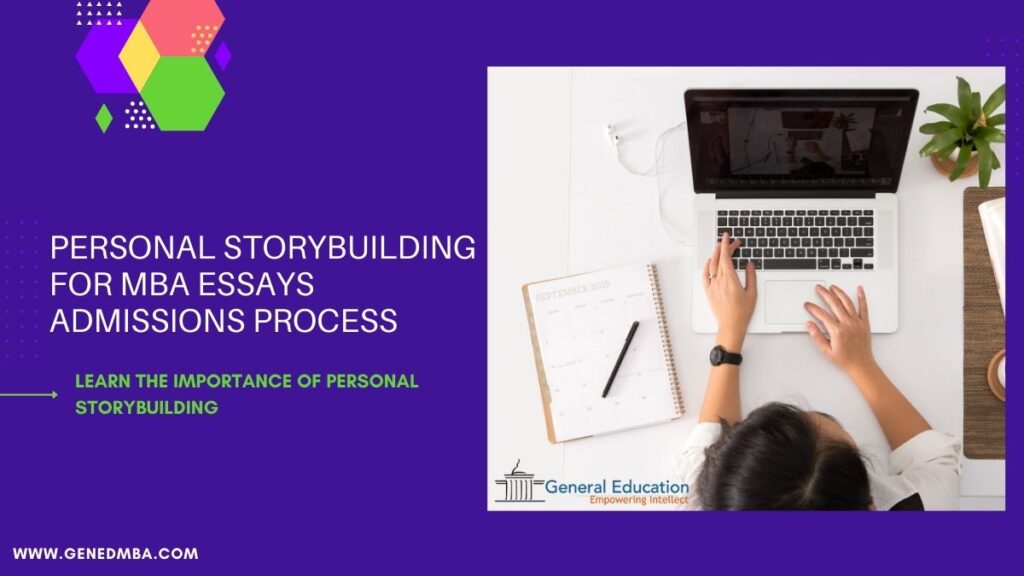
There’s no one formula for a great MBA essay, but all strong essays share certain elements. One of those elements is a focus on a personal story. What is a personal story? It’s a concise, detailed account of something that happened in your life. It can be funny, heartwarming, or even tragic. But most importantly, it should be about you.
Your personal story should be relevant to your MBA application. For example, if you’re applying to business school to pursue a career in marketing, you might tell a story about a time when you had to come up with an innovative marketing campaign on a tight deadline. Make sure your personal story is well-written and free of grammar and spelling errors. It should also be engaging and interesting to read.
The personal story-building process begins with brainstorming. You will want to think about your life experiences, both professional and personal, that have shaped who you are today. Once you have a good list of experiences to draw from, you will need to start narrowing down your choices and selecting the most impactful stories to share.
The most typical question asked about personal statements is how they are used in the admissions process. As a general rule, they supplement the primary admissions criteria, which are your GPA and GMAT score.
In a highly competitive applicant pool, schools usually screen out lesser qualified applicants by imposing a minimum cutoff for GPA and test scores. Although an essay can explain a disappointing academic performance, it usually cannot compensate for it. There are limits to how much leeway we can give to a candidate who does not present a solid track record of success.
In contrast, essays from candidates in the top category are usually disaster checks. These applicants have exceptional grades, test scores, and impressive letters of recommendation. On paper, they are everything we are looking for. Their personal statements must:
a. explain their motivation and goals
b. document their character, integrity, and work ethic
For these candidates (excellent grades and test scores), bad or mediocre essays can be extremely harmful. In a highly competitive applicant pool, each piece of the admissions puzzle (GPA, GMAT score, essays, references) must “fit” together in a cohesive manner to show us who you are and what you have to offer. If your essay is poorly written or reveals a lack of focus and dedication, the committee will be less likely to take a chance on you.
Surprisingly, nearly 70% of the applicant pool falls into the average or borderline. These candidates have competitive grades and test scores but are otherwise not distinguishable from others with similar numbers.
Their acceptance or rejection often hinges on an exceptional intrinsic quality that captures our interest and makes a positive impression. In some cases, this can be their commitment to family, their dedication to community service, or their ability to overcome an obstacle. A persuasive personal story that discusses a candidate’s passion (and how they plan to use that skill in the future) can make or break his/her application; it provides the final piece of the puzzle that the committee needs to become excited about applicant.
Personal story building is a process of creating a personal narrative that can be used in MBA essays. The goal of personal story building is to produce a well-crafted, compelling story that will grab the attention of admissions committees and help you stand out from the rest of the applicants.
